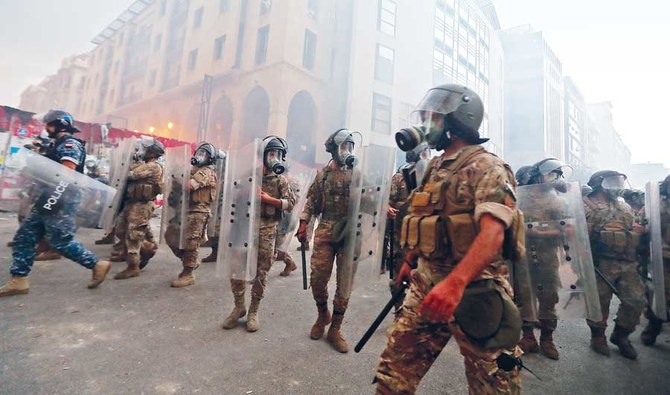
By NAJIA HOUSSARI — arabnews.com — BEIRUT: Lebanon’s caretaker government is under mounting pressure to hold by-elections to fill 10 vacancies in the country’s parliament caused by resignations and the recent deaths of two MPs from COVID-19. In recent months the parliament has lost 10 of its 128 members, raising doubts about legal issues in calculating the quorum, especially with regard to critical sessions, since there is an imbalance of the pact. Eight MPs submitted a collective resignation in protest against the corruption of the ruling authority after the Beirut port explosion. Three of the eight were Kataeb (Phalanges) MPs, while the others were either independent or had left their parliamentary blocs. Two MPs, Michel Murr and Jean Obeid, recently died from COVID-19 complications. The majority of the MPs who have left parliament are Christians, while one is Druze. Of the remaining 118 parliamentarians, 63 are Muslims and 55 Christian.
By-elections were supposed to take place within two months of parliament accepting the resignations of Marwan Hamadeh, Henri Helou, Paula Yacoubian, Nadim Gemayel, Samy Gemayel, Elias Hankach, Nehmeh Afram and Michel Moawad in the wake of the Beirut port blast. However, by-elections have not been held despite caretaker Interior Minister Mohammed Fahmi signing a decree inviting electoral bodies to organize the polls. The caretaker government did not sign the decree, which led to a constitutional violation. However, with the deaths of the two MPs, there has been renewed talk of the need to hold by-elections to fill the vacant seats. Parliamentary Speaker Nabih Berri said this week that he hoped the by-elections could take place in the spring.
Two missions face Lebanon in the coming year, the first in May 2022 to elect a new parliament to carry out the second Lebanese mission, which is to elect the president. President Michel Aoun’s term ends in October 2022. Fahmi responded to Berri’s request to submit a letter to the prime minister, setting the end of March as the deadline for elections. The issue comes amid a growing dispute between President Aoun and the Free Patriotic Movement (FPM) on the one hand and Prime Minister-designate Saad Hariri and his supporters on the other over the formation of the government. The political deadlock is the source of mounting concern and anger as the country’s economic and health crisis worsens. Legal expert Antoine Sfeir said that if by-elections are not held, parliamentary elections are unlikely to take place in the coming year. He added that “there is fear that the current parliament, with its 118 members — if there are no new deaths — will elect the next president of the republic at the end of Aoun’s term.”
If a decision is made to hold by-elections, the polls will take place under current electoral law and according to the majority system in Achrafieh in Beirut as well as Tripoli, Zgharta, Keserwan, Chouf and Alyeh. However, they will also be held according to the proportional system in Matn (three seats), where there are diverse Christian parties, including the Kataeb (Phalange) Party, the Armenian Revolutionary Federation (Dasgnaks), the Free Patriotic Movement (FPM), the Lebanese Forces, and Syrian Social Nationalist Party (SSNP), along with the civil society. The electoral battles will be mainly confined to Matn, which means a test of the popularity of the parties in this Christian environment. Whereas in the other electoral districts, the results will be almost certain, due to the absence of party competition and the absence of a bloc or coalition of independent civil groups, with the exception of Achrafieh, where elections are linked to alliances.
Political analysts suggest that MP Marwan Hamadeh will be succeeded by his son Karim, and that the late MP Jean Obeid will be succeeded by his son Suleiman. The media spokesman for the Lebanese Forces Party, Charles Jabbour, said: “If the current (ruling) authority is able to hold by-elections now, then it is capable of holding general elections, so why not hold these general elections now to reduce the simultaneity of the elections that will take place next year? “I think that the ruling authority is afraid of early and upcoming elections because the people’s resentment will be seen in the ballot boxes, and this does not suit the authority that wants to extend the current parliament so that it can reproduce itself.” Jabbour said that “by-elections are imposed by the constitution, so will they take place? In any case, it is forbidden to extend the current parliament, and we are on the lookout.”



